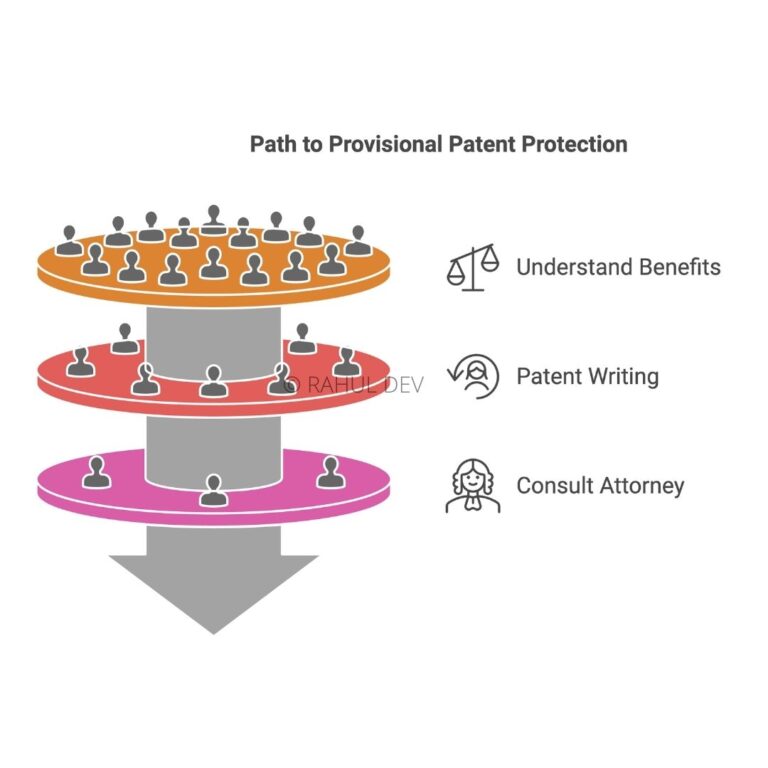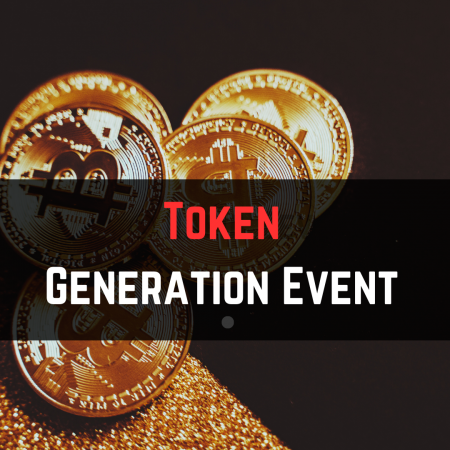Legal Considerations Before Utility Token Generation Event (TGE)
Utility Token Launch
Insights by Dr. Rahul Dev

Understand Practical Aspects
Understand the essential legal considerations before launching utility token projects

Insights by Dr. Rahul Dev

Understand the essential legal considerations before launching utility token projects

Protect your innovations across multiple countries and create strong patent portfolio to boost business valuation
Local and global brand protection through international trademark registrations
Extensive research and business writing for technical whitepapers and B2B content products
Here I explain essential legal considerations before token generation event for utility token projects with global users. In my 20 years of experience across global markets as technology business attorney, with 8 years working on token generation events since 2017, I have guided hundreds of successful TGE launches across various international jurisdictions. My experience representing blockchain startups, Fortune 500 companies exploring tokenization, and everything in between has taught me that legal preparation before TGE determines the regulatory journey of utility token projects. I always suggest the blockchain project teams to equally focus on technical development and marketing along with the legal compliance requirements for token launch projects.
This article covers following topics:
Designing Tokens Outside Security Classification Scope
Legal Documentation Framework For TGE Launches
How to Develop International Utility Token Compliance Strategy
Dr. Rahul Dev, author of this article, a technology business attorney with more than twenty years of experience, writes this article about legal considerations associated with token generation events (TGE) for utility token projects.

I regularly prepare project strategy for new utility token projects to ensure that the utility tokens stay outside the scope of security classification. One of the most common pitfalls to avoid is to ensure that the technical definition of the utility token should align thoroughly with the token sale structure. In this aspect, the gaming tokens present unique classification challenges because player speculation often creates secondary markets that regulators interpret as investment activity. I usually examine four critical factors: the token’s functional utility within the ecosystem, the timing of utility activation relative to the sale, marketing language that suggests investment returns, and the presence of speculative trading mechanisms. Similarly, AI tokens face different but equally complex issues, particularly when the underlying AI models generate economic value that could be construed as profit-sharing. The token classification process I have developed requires 3-4 weeks of analysis before any TGE planning begins. This investment prevents the catastrophic costs associated with post-launch reclassification, which I have seen destroy otherwise viable projects. The framework examines utility functions, distribution mechanisms, and economic incentives through the lens of current regulatory interpretations, not theoretical legal arguments.
The legal documentation requirements I insist upon today evolved through the rapidly evolving regulatory landscape. Early TGEs in 2017-2018 succeeded with basic token purchase agreements and minimal disclosure documents. The regulatory environment tightened significantly by 2020, which compelled me to develop comprehensive legal documentation for token sales that addresses every potential compliance gap. My current documentation suite includes seven core components that integrate seamlessly with technical development and business operations. The token purchase agreement framework I use now contains 23 specific clauses addressing utility activation timelines, regulatory change provisions, and buyer acknowledgments that have withstood regulatory scrutiny across multiple jurisdictions. The whitepaper legal review process identifies 12 categories of problematic language that attract regulatory attention, replacing promotional terminology with precise technical descriptions. The legal documentation development timeline requires 6-8 weeks parallel to technical development, not sequential to it. Teams that attempt to draft legal documents after completing their technical build face substantial delays and expensive revisions. The integrated approach I have refined allows legal and technical specifications to inform each other, creating stronger utility token products and clearer compliance positions.
The complexity of international token compliance became clear during my first cross-border TGE in 2018, when identical tokens required different legal structures across US, EU, and Asian markets. The project succeeded, but the learning curve was steep and expensive. My jurisdiction analysis framework now prevents these inefficiencies while ensuring comprehensive compliance from project inception.
European markets, particularly under MiCA regulations, require utility token disclosures that US projects often overlook. The EU digital asset regulations demand specific technical documentation and ongoing reporting that affects token design decisions. UK post-Brexit requirements create additional complexity for projects targeting both EU and UK markets simultaneously. Asian jurisdictions vary dramatically, with Singapore offering clear frameworks while others maintain restrictive positions. The strategic approach I use examines target markets during the concept phase, not after technical development. This analysis influences token economics, distribution mechanisms, and utility design in ways that dramatically reduce compliance costs. Projects that retrofit compliance after completing technical development face 3-4 times higher legal costs and frequently encounter insurmountable regulatory conflicts.
The majority of token legal issues I encounter happen 6-18 months after TGE launch, not during the sale itself. This pattern emerged consistently across my practice: teams celebrate successful token launches while ignoring ongoing legal obligations for utility tokens that determine project survival. My post-launch compliance framework addresses these requirements systematically. The utility token activation presents the most complex ongoing challenge. Tokens sold based on promised utility features must deliver those features within reasonable timeframes to maintain their utility classification. The token utility implementation timeline I require includes legal checkpoints ensuring that utility delivery meets regulatory expectations. Projects that delay utility activation beyond 12 months face increased scrutiny and potential reclassification risks.
The ongoing reporting requirements vary by jurisdiction but consistently require regular documentation of utility usage, token distribution patterns, and project development progress. The utility token compliance monitoring system I have developed automates much of this reporting while flagging potential issues before they become regulatory problems. This proactive approach costs significantly less than reactive compliance management and preserves project value throughout the token lifecycle. The investment in comprehensive TGE legal preparation typically represents 2-4% of total project costs while preventing issues that could eliminate 100% of project value. My experience across multiple successful launches demonstrates that systematic legal preparation from utility token project inception creates sustainable token ecosystems that thrive under regulatory scrutiny rather than fear it.

As a business coach and thought leader, I cannot emphasize enough the importance of innovation, new software patents, mobile apps, and patents for tech companies, startups, and entrepreneurs. The world is rapidly evolving, and staying ahead of the curve is vital for success. Embracing technological advancements such as blockchain and AI can unlock unprecedented opportunities, streamline operations, and propel businesses into the future with competitive valuation via intangible assets.
Click Here for AI Startup Valuation Guide.
For instance, blockchain technology can revolutionize supply chain management and secure data sharing wherein innovative business models are explained to the audience via technical whitepapers, while AI can automate and optimize decision-making processes. Mobile apps are no longer just a luxury; they have become essential tools for engaging customers and offering personalized experiences. Furthermore, securing digital innovation patents is crucial for protecting intellectual property, fostering innovation, and maintaining a competitive edge. By investing in these areas, businesses can position themselves as industry pioneers and pave the way for a prosperous future after thoroughly conducting the due diligence and reviewing the legal opinion letters, which in case of digital assets can assist in determining the tokens as utility assets or coins as utility tokens before listing the assets at an exchange.
Our team of advanced patent attorneys assists clients with patent searches, drafting patent applications, and patent (intellectual property) agreements, including licensing and non-disclosure agreements. Advocate Rahul Dev is a Patent Attorney & International Business Lawyer practicing Technology, Intellectual Property & Corporate Laws. He is reachable at rd (at) patentbusinesslawyer (dot) com & @rdpatentlawyer on Twitter.
Quoted in and contributed to 50+ national & international publications (Bloomberg, FirstPost, SwissInfo, Outlook Money, Yahoo News, Times of India, Economic Times, Business Standard, Quartz, Global Legal Post, International Bar Association, LawAsia, BioSpectrum Asia, Digital News Asia, e27, Leaders Speak, Entrepreneur India, VCCircle, AutoTech).
Regularly invited to speak at international & national platforms (conferences, TV channels, seminars, corporate trainings, government workshops) on technology, patents, business strategy, legal developments, leadership & management.
Working closely with patent attorneys along with international law firms with significant experience with lawyers in Asia Pacific providing services to clients in US and Europe. Flagship services include international patent and trademark filings, patent services in India and global patent consulting services.
Global Blockchain Lawyers (www.GlobalBlockchainLawyers.com) is a digital platform to discuss legal issues, latest technology and legal developments, and applicable laws in the dynamic field of Digital Currency, Blockchain, Bitcoin, Cryptocurrency and raising capital through the sale of tokens or coins (ICO or Initial Coin Offerings).
Blockchain ecosystem in India is evolving at a rapid pace and a proactive legal approach is required by blockchain lawyers in India to understand the complex nature of applicable laws and regulations.